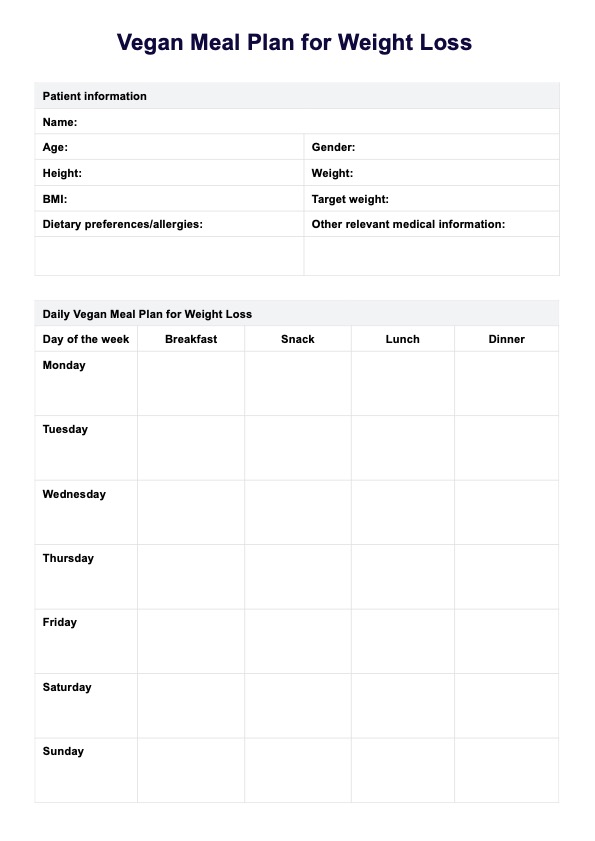Yes, it is possible to lose weight quickly on a vegan diet by focusing on nutrient-dense, low-calorie foods that create a calorie deficit. However, maintaining a balanced meal plan with adequate protein, fiber-rich foods, and healthy fats is crucial for sustainable and healthy weight loss.

Vegan Meal Plan for Weight Loss
Discover Carepatron's Vegan Meal Plan for Weight Loss to collaborate with patients in better meal planning.
Vegan Meal Plan for Weight Loss Template
Commonly asked questions
Vegans should eat a variety of whole, plant-based foods such as leafy greens, legumes, whole grains, fruits, and plant-based proteins while minimizing high-calorie processed foods. Incorporating healthy fats, like those from avocado and nuts, and ensuring adequate protein intake from sources like lentils and tofu can aid in weight loss.
Vegans should avoid processed foods high in added sugars, unhealthy fats, and refined grains, as these can hinder weight loss and overall health. Additionally, sugary beverages and high-calorie vegan baked goods should be minimized to maintain a calorie deficit.
EHR and practice management software
Get started for free
*No credit card required
Free
$0/usd
Unlimited clients
Telehealth
1GB of storage
Client portal text
Automated billing and online payments











